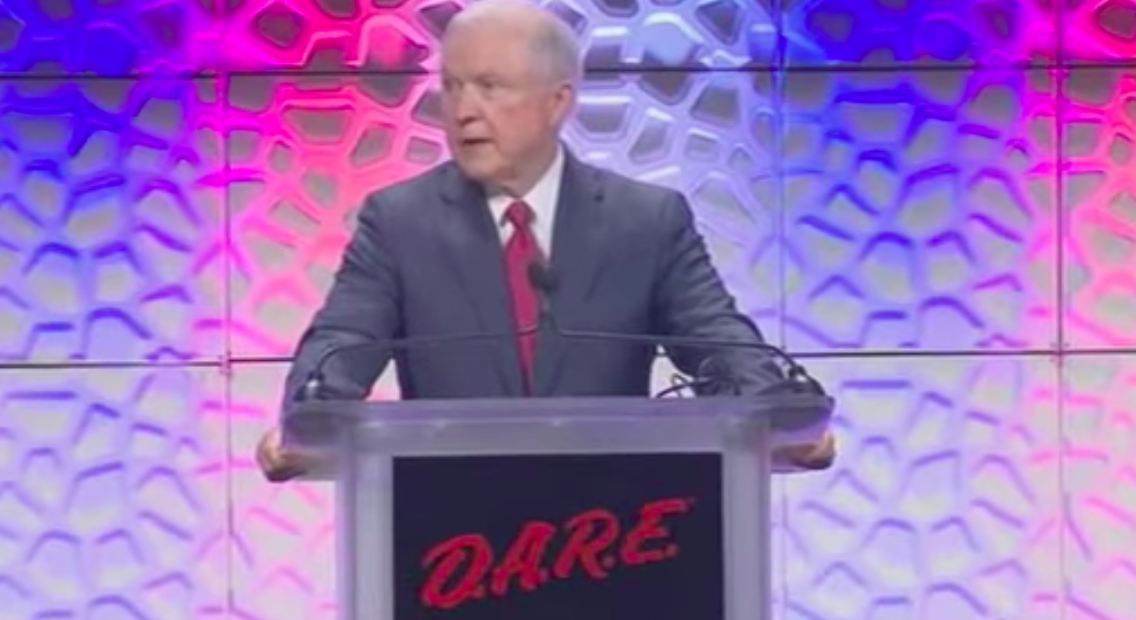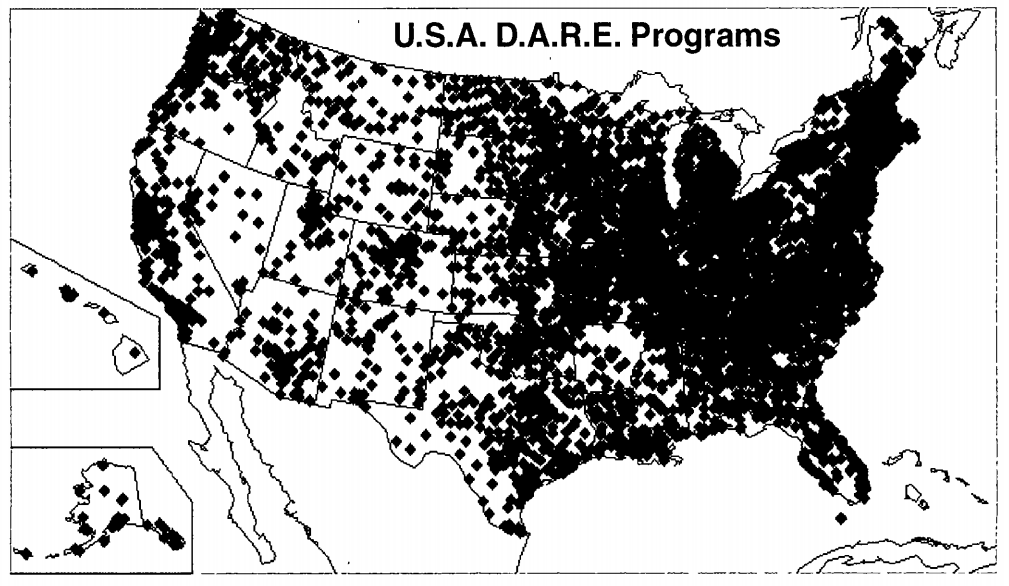Jeff Sessions Thinks D.A.R.E. Was a Huge Success

By:
On Tuesday, Attorney General Jeff Sessions gave a speech at a D.A.R.E. training conference in Texas, where he celebrated the famed anti-drug program. Sessions waxed nostalgic about D.A.R.E.'s early years when its extreme, anti-drug message bred fear in the heart's of elementary school students nationwide and said, "in recent years, people have not paid much attention to that message, but they are ready to hear it again."
There's just one problem with Sessions' glowing praise for the program: it hasn't actually been effective. Since it was inception in Los Angeles in 1983, study after study has demonstrated that kids who participate in the anti-drug program aren't any less likely to partake in illegal drugs. And in some cases, it's had the opposite effect.
_program_graduates_at_Pearl_Harbor_Elementary_School.jpg?auto=format&crop=faces&fit=crop&q=60&w=736&ixlib=js-1.1.0) Wikimedia - wikimedia.org
Wikimedia - wikimedia.org
The lesson most drug policy experts have taken from D.A.R.E. is that attempts to scare kids from drugs generally backfire and being honest about drugs can be productive. In light of this, the D.A.R.E. program reinvented itself in the last decade with a new curriculum called "keepin' it REAL", which features an evolved and improved program that shifts the emphasis of drug education from fear mongering to information. Which is why Sessions' calls to return to the glory days of D.A.R.E ring as willfully uninformed.
 YouTube - youtube.com
YouTube - youtube.com
"We know it worked before and we can make it work again," he said.
Sessions is probably right that D.A.R.E. is the "best remembered anti-drug program today." But it's remembered by many as a program that aggressively oversold the risks of drugs. For example, you might remember watching D.A.R.E.-sponsored educational videos, like this bizarre one about cocaine:
When students grew up and learned that D.A.R.E.'s programs and lectures exaggerated the dangers of drug use, that resulted in distrust which appears to have led to even greater rates of experimentation, compared to students who weren't involved in the program. That's according to a 1994 meta-analysis that was commissioned by the federal agency that Sessions now leads, as The Washington Post reported.
Dr. Michelle Miller-Day, a communications professor at Chapman University whose research on drug abuse has informed D.A.R.E.'s more recent, evidence-based approach to prevention, told ATTN: that she disagrees with Sessions' assessment of the program.
"In the early 1990s, [D.A.R.E.] programs were built in a vacuum," Miller-Day said. "Officers wanted to scare kids into not doing drugs, as if it was that easy. As we know with any kind of behavior or behavior change for kids who are using, it’s not in a vacuum: there are social, mental, individual factors that we need to address."

Instead of looking back at policies and messaging that promoted fear-based education, the Justice Department should be heartened by the results of its current agenda, which is meant to empower young people to make responsible choices. The program's current, evidence-based approach includes "more clinical trials that follow kids and compared to control groups—kids who don’t get the program and kids who do—and talk to them for 12 to 14 months after to see if there are sustained effects of the program," Miller-Day said.
Sessions' interest in reviving the D.A.R.E. of yesteryear could also be counterproductive, as rates of illicit substance abuse among teens are at historic lows. And for what it's worth, teen drug use reached its peak in 1995 and 1996—about the time when D.A.R.E.'s presence in U.S. school districts had vastly expanded, as this map illustrates.
 IRS - propublica.org
IRS - propublica.org
Miller-Day doesn't buy the idea that Americans are eager to return to the harsh, anti-drug messaging of D.A.R.E. of the early 1990s, either. As she put it, that kind of rhetoric "is based on the justice system as opposed to [drug] prevention."
